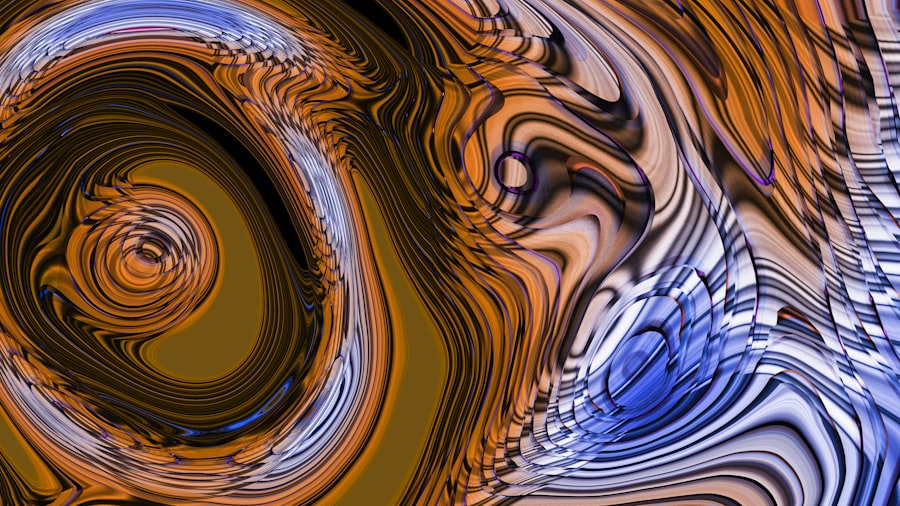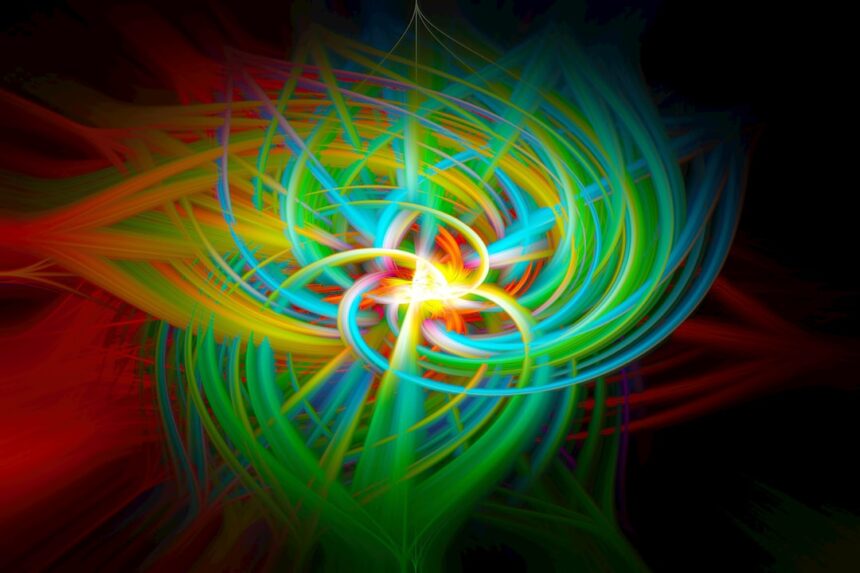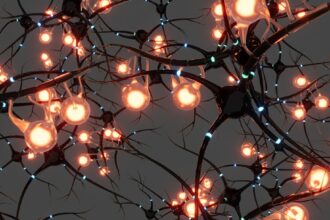As you delve into the fascinating world of quantum mechanics, one concept that stands out is quantum collapse. This phenomenon refers to the process by which a quantum system transitions from a superposition of states to a single, definite state upon measurement or observation. The implications of quantum collapse are profound, influencing not only the field of physics but also our understanding of reality itself.
In essence, it challenges the very nature of existence, suggesting that the act of observation plays a crucial role in determining the state of a system. Understanding quantum collapse requires you to navigate through complex theories and interpretations that have evolved over time. It raises questions about the nature of reality, the role of the observer, and the fundamental principles governing the universe.
As you explore this topic, you will encounter various perspectives that attempt to explain what happens during this mysterious transition and how it shapes our understanding of the quantum realm.
Key Takeaways
- Quantum collapse is a fundamental concept in quantum mechanics that describes the sudden change in the state of a quantum system when it is observed or measured.
- Historical perspectives on quantum collapse reveal the evolution of ideas and theories about the nature of reality at the quantum level, from the early debates between Niels Bohr and Albert Einstein to the development of the Copenhagen interpretation.
- The role of observation in quantum collapse highlights the unique and puzzling relationship between the act of measurement and the behavior of quantum particles, raising questions about the nature of reality and the role of consciousness in shaping it.
- Quantum collapse and the uncertainty principle are closely related, as the act of measurement or observation collapses the wave function of a quantum system, leading to a specific outcome and eliminating the uncertainty inherent in the system.
- The connection between quantum collapse and entanglement reveals the intricate and non-local correlations between entangled particles, where the collapse of the state of one particle instantaneously affects the state of its entangled partner, regardless of the distance between them.
Historical Perspectives on Quantum Collapse
The journey into the historical perspectives on quantum collapse begins with the early 20th century when pioneers like Max Planck and Albert Einstein laid the groundwork for quantum theory. Planck’s introduction of quantized energy levels marked a significant departure from classical physics, setting the stage for a new understanding of atomic and subatomic processes. As you trace the evolution of these ideas, you will find that the concept of quantum collapse emerged as scientists grappled with the implications of wave-particle duality.
In the 1920s, physicists such as Niels Bohr and Werner Heisenberg further developed these ideas, leading to the formulation of the Copenhagen interpretation. This interpretation posited that quantum systems exist in a state of probability until measured, at which point they “collapse” into a definite state. As you explore this historical context, you will see how debates over the nature of reality and observation began to take shape, laying the groundwork for ongoing discussions about quantum collapse.
The Role of Observation in Quantum Collapse

Observation plays a pivotal role in the phenomenon of quantum collapse, and understanding this relationship is essential for grasping the intricacies of quantum mechanics. When you observe a quantum system, you are not merely passively watching; your act of measurement influences the system itself. This idea challenges traditional notions of objectivity and suggests that reality is not independent of observation.
As you consider this perspective, you may find yourself questioning the very nature of existence and whether reality is an objective truth or a subjective experience. The implications of this relationship extend beyond theoretical discussions. In practical terms, it means that the act of measurement can fundamentally alter the outcome of an experiment.
For instance, in experiments involving particles like electrons or photons, their behavior can change based on whether or not they are being observed. This phenomenon raises intriguing questions about causality and determinism, inviting you to ponder how your own observations shape the world around you.
Quantum Collapse and the Uncertainty Principle
| Concept | Definition |
|---|---|
| Quantum Collapse | The sudden transition of a quantum system from a superposition of states to a single definite state when measured. |
| Uncertainty Principle | A principle in quantum mechanics that states that certain pairs of physical properties, such as position and momentum, cannot be simultaneously known to arbitrary precision. |
| Quantum Mechanics | The branch of physics that deals with the mathematical description of the motion and interaction of subatomic particles. |
The uncertainty principle, formulated by Werner Heisenberg, is another cornerstone of quantum mechanics that intertwines with the concept of quantum collapse. This principle states that certain pairs of physical properties, such as position and momentum, cannot be simultaneously known with arbitrary precision. As you explore this principle, you will discover how it relates to quantum collapse by emphasizing the inherent limitations in our ability to measure and predict outcomes in the quantum realm.
When a measurement is made, it forces a quantum system into a specific state, effectively collapsing its wave function. However, this act also introduces uncertainty regarding other properties. For example, if you measure an electron’s position with high precision, its momentum becomes increasingly uncertain.
This interplay between measurement and uncertainty highlights the delicate balance inherent in quantum systems and underscores the complexity of understanding reality at a fundamental level.
The Connection Between Quantum Collapse and Entanglement
Entanglement is another fascinating aspect of quantum mechanics that connects deeply with quantum collapse. When two particles become entangled, their states become interdependent regardless of the distance separating them. This means that measuring one particle instantaneously affects the state of the other, even if they are light-years apart.
As you explore this connection, you will find that entanglement challenges classical intuitions about locality and separability. The phenomenon of entanglement raises profound questions about the nature of reality and information transfer.
This interconnectedness invites you to rethink your understanding of causality and communication in the universe.
Quantum Collapse and the Many-Worlds Interpretation

The Many-Worlds Interpretation (MWI) offers an alternative perspective on quantum collapse that diverges from traditional views. Proposed by Hugh Everett III in 1957, MWI suggests that all possible outcomes of a quantum event actually occur, each in its own separate universe or “branch.” As you engage with this interpretation, you will find it both intriguing and perplexing, as it challenges conventional notions of reality by positing an infinite number of parallel universes. In this framework, when a measurement occurs and a quantum system collapses into one state, all other potential outcomes continue to exist in alternate realities.
This means that every decision you make or observation you conduct could lead to countless divergent paths in parallel universes. The implications are staggering: not only does it redefine your understanding of choice and consequence, but it also raises questions about identity and existence across multiple realities.
Quantum Collapse and the Measurement Problem
The measurement problem is a central issue in quantum mechanics that directly relates to quantum collapse. It arises from the tension between the deterministic evolution described by Schrödinger’s equation and the probabilistic nature observed during measurement. As you explore this problem, you’ll encounter various interpretations that attempt to reconcile these conflicting aspects.
One approach is to consider whether quantum collapse is an actual physical process or merely an epistemic update reflecting our lack of knowledge about a system’s state prior to measurement. This distinction invites you to ponder whether reality exists independently of observation or if it is fundamentally intertwined with our perceptions. The measurement problem remains an open question in physics, prompting ongoing research and debate as scientists seek to uncover deeper truths about the nature of reality.
Quantum Collapse and the Future of Quantum Computing
As you look toward the future, quantum collapse plays a crucial role in shaping advancements in quantum computing technology. Quantum computers leverage principles such as superposition and entanglement to perform calculations at speeds unattainable by classical computers. However, harnessing these properties requires careful management of quantum states and their collapse during measurement.
In practical terms, this means developing error-correction techniques and algorithms that can mitigate the effects of decoherence—the loss of coherence among quantum states due to environmental interactions. As researchers work to build more robust quantum systems, your understanding of quantum collapse will be essential for navigating challenges related to stability and reliability in quantum computing applications.
Practical Applications of Quantum Collapse
The implications of quantum collapse extend beyond theoretical discussions; they have tangible applications across various fields. In medicine, for instance, advancements in imaging technologies such as MRI rely on principles rooted in quantum mechanics. Understanding how quantum states collapse during measurements allows for more accurate imaging techniques that enhance diagnostic capabilities.
Additionally, industries such as cryptography are beginning to harness concepts related to quantum collapse for secure communication methods. Quantum key distribution (QKD) utilizes principles like entanglement and measurement to create secure channels for transmitting information. As you explore these practical applications, you’ll see how insights into quantum collapse are driving innovation across diverse sectors.
Ethical and Philosophical Implications of Quantum Collapse
The exploration of quantum collapse also invites ethical and philosophical considerations that challenge your understanding of existence and consciousness. If observation plays a fundamental role in shaping reality, what does this mean for free will? Are our choices predetermined by underlying quantum processes?
These questions provoke deep reflection on human agency and responsibility within a universe governed by probabilistic laws. Moreover, as advancements in technology blur the lines between human perception and machine observation, ethical dilemmas arise regarding privacy and autonomy. The implications of quantum collapse extend into discussions about artificial intelligence and its potential impact on society.
As you engage with these philosophical inquiries, you’ll find yourself grappling with profound questions about identity, consciousness, and what it means to exist in a world influenced by quantum phenomena.
The Implications of a New Understanding of Quantum Collapse
In conclusion, your exploration of quantum collapse reveals a rich tapestry woven from historical perspectives, theoretical interpretations, practical applications, and ethical considerations. As you navigate this complex landscape, it becomes clear that understanding quantum collapse is not merely an academic exercise; it has far-reaching implications for how we perceive reality itself. As science continues to advance our knowledge of quantum mechanics, your engagement with these concepts will shape your understanding of existence and consciousness in profound ways.
Whether through advancements in technology or philosophical reflections on free will and agency, the implications of a new understanding of quantum collapse will resonate across disciplines for years to come. Embracing this complexity invites you to ponder your place within a universe governed by both uncertainty and possibility—a journey that promises to be as enlightening as it is challenging.
In the fascinating realm of quantum mechanics, the concept of quantum collapse is pivotal in understanding how particles transition from a state of superposition to a single, definite state upon measurement. This phenomenon raises intriguing questions about the nature of reality and observation. For those interested in exploring the psychological implications of such quantum phenomena, an insightful article can be found on the Unplugged Psych website. This article delves into the intersection of quantum theory and psychology, offering a unique perspective on how these fields may influence each other. To read more about this intriguing topic, visit the Unplugged Psych article.
FAQs
What is quantum collapse?
Quantum collapse refers to the sudden and unpredictable change in the state of a quantum system when it is observed or measured.
What causes quantum collapse?
The exact cause of quantum collapse is still a topic of debate among physicists. Some interpretations of quantum mechanics suggest that the act of measurement or observation causes the collapse, while others propose that it is related to the interaction between the quantum system and its environment.
What are the implications of quantum collapse?
The concept of quantum collapse has significant implications for our understanding of the nature of reality at the quantum level. It challenges classical notions of determinism and raises questions about the role of consciousness in the measurement process.
How is quantum collapse related to the measurement problem in quantum mechanics?
The measurement problem in quantum mechanics refers to the unresolved issue of how and why the act of measurement causes the collapse of the quantum state. Quantum collapse is directly related to this problem, as it is the phenomenon that the measurement problem seeks to explain.
Can quantum collapse be observed in everyday life?
Quantum collapse is typically observed and studied in the context of experiments at the microscopic scale, such as in the behavior of individual particles. Its effects are not directly observable in everyday life due to the macroscopic nature of our surroundings.




